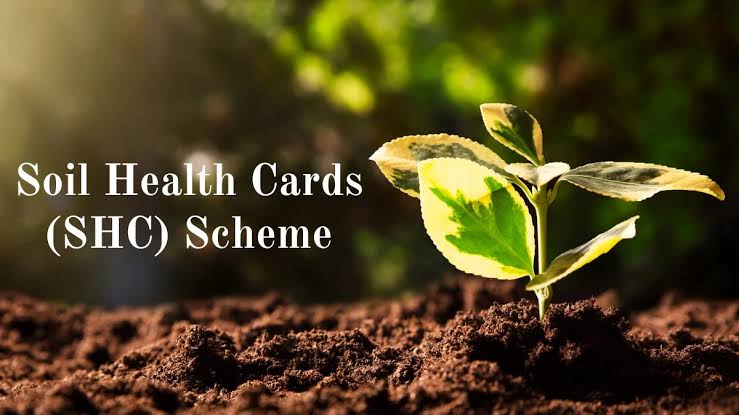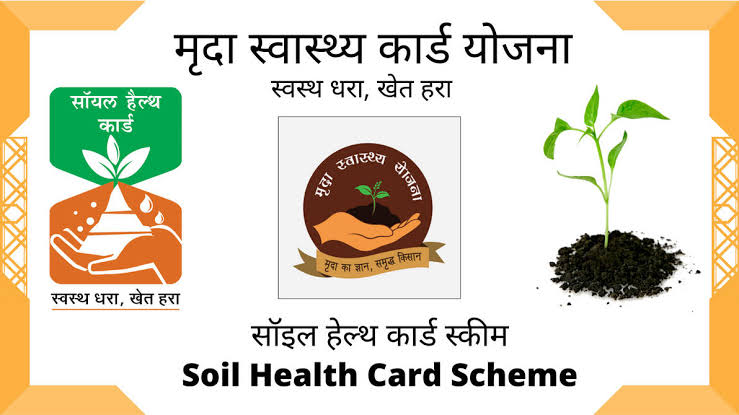Introduction
Soil health is the foundation of sustainable agriculture. It determines the productivity of crops and the quality of the environment. The Soil Health Card (SHC) scheme is a government initiative in India, launched to promote soil management practices that sustain and enhance soil health. This article delves into what a Soil Health Card is, its importance, benefits, how it works, and other frequently searched aspects.

What is a Soil Health Card?
A Soil Health Card (SHC) is a report that provides each farmer with vital information about the condition of their soil. It includes essential details about the soil’s nutrient status, pH levels, and recommendations on the type and amount of fertilizers required for optimal crop growth. The card is tailored to each farmer’s land, ensuring that the information provided is relevant and actionable.
Objectives of the Soil Health Card Scheme
The Soil Health Card scheme was launched by the Government of India in 2015 under the National Mission for Sustainable Agriculture (NMSA). The primary objectives are:
- To assess the soil’s nutrient status in various parts of the country.
- To promote balanced fertilizer use and avoid overuse or underuse, leading to better crop yields.
- To enable farmers to make informed decisions regarding soil management, ensuring long-term soil fertility.
- To increase awareness among farmers about soil health and sustainable farming practices.
Features of a Soil Health Card
A typical Soil Health Card includes:
- Farmer’s details: Name, address, and the specific plot of land analyzed.
- Nutrient status: Levels of essential nutrients like Nitrogen (N), Phosphorus (P), Potassium (K), and secondary nutrients such as Sulphur (S), Magnesium (Mg), Calcium (Ca).
- Micronutrient levels: Status of Zinc (Zn), Iron (Fe), Copper (Cu), Manganese (Mn), and Boron (B).
- Soil parameters: pH level, Electrical Conductivity (EC), Organic Carbon (OC) content.
- Fertilizer recommendations: Based on the crop to be grown and the soil test results, the card suggests the type and quantity of fertilizers to be used.

Importance of Soil Health Card
The Soil Health Card is crucial for:
- Improving Soil Fertility: By providing specific information on nutrient deficiencies, it helps farmers apply the right type and quantity of fertilizers, thus enhancing soil fertility.
- Promoting Sustainable Farming: It encourages balanced use of chemical fertilizers, reducing the risk of soil degradation and environmental pollution.
- Boosting Crop Yields: Correct nutrient management leads to better crop growth and higher yields.
- Cost-Effective Farming: With precise fertilizer recommendations, farmers can avoid unnecessary expenses on fertilizers, making farming more cost-effective.
How Does the Soil Health Card Scheme Work?
The process involves several steps:
- Soil Sample Collection: Soil samples are collected from farmers’ fields. A sample is taken for every 2.5 hectares of land in irrigated areas and 10 hectares in rain-fed areas.
- Soil Testing: The samples are tested in soil testing laboratories (STLs) for various parameters like pH, EC, organic carbon, macronutrients, and micronutrients.
- Card Generation: Based on the test results, a Soil Health Card is generated for each farmer, providing detailed insights and recommendations.
- Distribution to Farmers: The card is then distributed to the farmers, who can use the information to improve their soil management practices.
Soil Health Card Scheme Implementation
Since its launch, the Soil Health Card scheme has been implemented nationwide, covering millions of hectares of agricultural land. Below is a table showing the implementation status of the scheme as of the latest data available:
| Year | Number of Soil Samples Collected | Number of Soil Health Cards Distributed |
|---|---|---|
| 2015-16 | 53 million | 35 million |
| 2016-17 | 44 million | 29 million |
| 2017-18 | 30 million | 25 million |
| 2018-19 | 28 million | 24 million |
| 2019-20 | 26 million | 22 million |
Benefits of the Soil Health Card Scheme
- Informed Decision-Making: Farmers receive customized advice, which helps them make better decisions regarding soil treatment and crop selection.
- Enhanced Productivity: By addressing specific soil deficiencies, the scheme helps in increasing crop productivity.
- Environmental Benefits: Reduced chemical usage contributes to lowering the pollution of soil and water bodies.
- Economic Gains: Farmers save money on fertilizers and other inputs by using only what is necessary, improving their overall profitability.
Challenges Faced in the Soil Health Card Scheme
While the Soil Health Card scheme has been beneficial, there are several challenges:
- Awareness and Accessibility: Not all farmers are aware of the scheme or how to utilize the information provided.
- Quality of Soil Testing: Variability in soil testing accuracy due to outdated equipment or lack of skilled personnel in some labs.
- Timely Distribution: Delays in the distribution of cards can affect their utility during the farming season.
Future Prospects of the Soil Health Card Scheme
To enhance the effectiveness of the Soil Health Card scheme, the government is working on:
- Improving soil testing infrastructure: Upgrading laboratories with modern equipment.
- Training programs: For farmers on how to read and use the Soil Health Card effectively.
- Digitalization: Making the SHC available online and accessible via mobile apps for easy and timely access.
FAQs about Soil Health Card
- What crops can benefit from the Soil Health Card?
- The SHC provides recommendations for all types of crops, including cereals, pulses, fruits, and vegetables.
- Is the Soil Health Card free of cost?
- Yes, the Soil Health Card is provided free of cost to farmers under the government scheme.
- How often should soil testing be done?
- It is recommended to test the soil every three years for sustained soil health monitoring.
- Can I apply the same fertilizer across all my fields?
- No, fertilizer application should be based on the specific recommendations provided in the SHC for each plot of land.
- What if my Soil Health Card is lost?
- You can request a duplicate card from the local agricultural office or access the information online if available.
Conclusion
The Soil Health Card scheme is a transformative initiative that empowers farmers with critical information about their soil, leading to sustainable and profitable farming practices. By addressing the unique needs of each plot of land, it not only enhances crop productivity but also contributes to the long-term health of the soil, making it a vital tool for the future of Indian agriculture.

